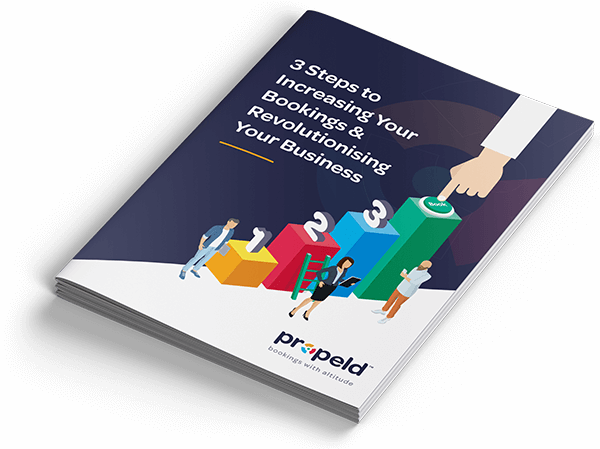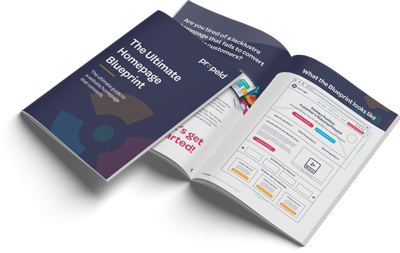Like any business, to successfully market themselves tourism operators need to have a marketing plan with measurable goals to make sure they are heading in the right direction. Usually, a tourism business’s marketing plan will consist of a variety of different short-term and long-term marketing tactics to generate sustained interest and engagement with their brand.
However, it is common to see many businesses focus solely on short-term tactics that deliver results immediately, rather than building up any long-term marketing collateral. Unfortunately, this causes a nasty loop where businesses get stuck in a rut of running short-term activities all the time.
In this article, we’ll look at some of the pros and cons of short and long term marketing for tourism and travel businesses.
Short-term Marketing for Tourism Pros & Cons
Using short-term tactics to market your business isn’t necessarily a bad thing, it’s just that sustaining it over a long period can get expensive – duh, right!
Some examples of short-term marketing tactics include:
- Pay per click advertising – Google Ads and Facebook Advertising
- Discount pricing and special deals.
- Video & Display advertising
Some pros for short-term marketing tactics include:
- You can reach an increased audience in a short amount of time.
- You have control of who you reach out to through targeting tools on channels like social media or paid search.
- There is the possibility of increasing your bookings quickly, by reducing prices or offering special deals.
Some cons of using short-term marketing as a long-term solution include:
- Advertising can be expensive over a long period.
- Discounting your price regularly can harm your brand.
- Once a short-term campaign stops there is generally no future value unless turned back on.
Long-term marketing for Tourism Pros & Cons
The best thing about long-term marketing for tourism is that they continue to be beneficial long after you’ve done the actual work. As opposed to short-term marketing, long-term tactics may cost more upfront, but over the course, they will generally be more cost-effective and have the potential to deliver more quality business.
Some examples of long-term marketing tactics include:
- Investing in Search Engine Optimisation to ensure your website appears for key search terms.
- Establishing an audience of fans and engaging with them on social media.
- Building a list of client and potential client emails so that you can continue to engage with them. You stand to see a 40x return on investment with email marketing.

- Building your brand‘s social proof through gathering reviews and testimonials on channels like TripAdvisor.
Some pros for long-term marketing tactics include:
- They work out to be a cheap investment over a long period of time due to their ongoing value.
- They allow you to build strong relationships with fans of your business.
- The audience being reached is generally more engaged.
Some cons of using long-term marketing as a short-term solution include:
- Regarding SEO for tourism, it takes a long time for your website or pages on your site to begin to rank (usually between 3-6 months).
- Being too salesy to your audience can damage your brand and turn fans away from you.
- It can take a long time to grow an audience organically without a blend of short-term tactics.
Effective Marketing is About Balance
For any marketing plan to be successful, especially for a tourism business, it needs to make use of a balance of short-term and long-term tactics. If your marketing plan relies too heavily on long terms tactics then your business may struggle to win enough business for the now. If you focus solely on short term tactics then you won’t be building any equity into your marketing and, as a result, when advertising tactics are turned off business will slump quickly.
So, the challenge for business owners and marketers is how to prioritise short and long-term tactics. For us, you need to begin by laying the marketing foundations before moving into advertising, otherwise, you will be wasting money unnecessarily.
There are also ways that you can use both short and long term tactics to complement each other. For example, you could run an advertising campaign that has the goal of building your email list. In this case, the short-term tactic supports the long-term tactic by increasing the size of the audience that could be reached with the business’s email marketing.
Where to start
You probably know that you need to have a marketing plan, but you may not know where to start or what needs to be included to help your business. Sometimes it can be hard to figure out where to even start, especially when you’re too close to it to see clearly. That’s where an external pair of eyes can come in handy.
We can help identify where the gaps are in your business’s marketing, and let you know how you stack up compared to your competitors. We do this as part of our free brand, website and marketing audit. The audit includes:
- A 30-minute phone consultation with us;
- An analysis of your existing assets;
- An in-depth competitor comparison; and a
- A Personalised report that outlines an itinerary of priorities to successfully market your business.

